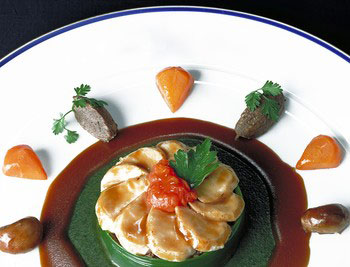 |
 |
Boost your BBQ IQ: so you need a new gas grill? You don't have to settle for one that's just a step up from a campfire. Gas grills now offer features that eliminate flare-ups, cook food evenly, and stand up to years of use. But, all grills are not created equal
The second and final round of the election last weekend was declared invalid because not enough of the required 50 per cent of voters turned out. And why this voter apathy? Partly because Seselj -- backed by Milosevic -- judged the mood well and called on his not insubstantial number of followers to boycott the poll; partly because ordinary Serbs are sick of the infighting among those now in charge of the country. Oh, and also because it was cold and wet on polling day. Now there are worrying signs for western leaders that too many Serbs are beginning to hanker for the devil they knew rather than wanting to stride forward into the unknown of a market-led economy. The politicians who united to overthrow Milosevic two years ago are largely to blame. They are so divided that their backbiting threatens to thrust the strident Seselj back into the political front line. The Serbian presidential run-off on 13 October was between Vojislav Kostunica, a law professor and a moderate who replaced Milosevic as Yugoslav president, and the fast-track reformer Miroljub Labus. But now that the process has been declared null and void there is every chance that Seselj -- the man Milosevic backed for president from his prison cell in The Hague -- will win through to the second round in a rerun. Seselj is a man of extreme views and once even called Milosevic a traitor for surrendering to Nato over Kosovo. He is likely to build on his unexpected success in the first round of the presidential elections at the end of September, when he came a close third in a field of 11 candidates. Many observers believe that Seselj and Kostunica are the two candidates most likely to make the second round in the repeated elections. Seselj's hand will probably be strengthened by intensified bickering in the ruling DOS coalition in the aftermath of last Sunday's election debacle. The background to the feuding is that Kostunica long ago argued with the Serbian prime minister Zoran Djindjic about the pace of change in Serbia and the handing of war crimes suspects, including Milosevic, to the Hague tribunal. Kostunica favours slower economic reforms and was furious when Djindjic masterminded Milosevic's surrender to the UN court in June. He favoured trying the former president in Serbia. Djindjic subsequently backed Labus in the presidential race, but even these two have subsequently argued. Of the 45.5 per cent of voters who turned out on Sunday, a third voted for Labus, who is unlikely to run again, and two-thirds for Kostunica. Arguments are likely to centre on how and when the new elections will be held. Under the present system, a new poll should beheld within 60 days--but moves to try to change the 50 per cent turnout rule would almost certainly put a new election back by months. This would give valuable time to Seselj to consolidate his unexpectedly high showing in the first round, when he scored more than 23 per cent -- only 4 per cent fewer than Labus. If a new election is delayed, an interim president will be appointed. "The election laws represent a major concern and disgrace," Kostunica said at a midnight news conference in Belgrade as the results were announced. His rival Labus said: "We should all look ourselves in the mirror and ask why more than 50 per cent of the voters did nor vote, even though it is clear to all that Serbia needs a president." One of the few people with reasons to be cheerful is Milosevic. The outcome indicates an uncomfortably large following for the old regime and lingering mistrust of capitalism. Many Serbs also feel that Seselj's strong showing in the first round was at least partly due to the country's unhappiness at the Hague process, with even some of Milosevic's bitterest opponents believing the former president should have been tried at home. Milosevic's hearing is broadcast live on television here and many think the UN war crimes tribunal is biased against all Serbs. That the election has not led to the clear-cut separation from the past that western leaders would have liked may be another source of comfort for Milosevic. Hundreds of thousands of Serbs, especially those in the old state-run industries, will have to lose their jobs as the country catches up with western Europe. For them, the more slowly this is done the better. Most of the western investment beginning to come into the country is destined for high-tech companies and industries with low manpower requirements. Meanwhile, prices are rising as state subsidies for heating, health and food are phased out. Electricity prices alone rose by 50 per cent during the summer; inflation, though lower than the 20 per cent predicted for this year, is likely to be running at 15 percent by December. The average Serbian wage is 150 euros per month. The west is clearly dismayed. Official election observers criticised the election rules, which have not been changed since Milosevic's days in power. A Serb working for the election monitors put it more bluntly: "It is time to pack your bags and head for the hills." |
| © Copyright 2025 Yingsakfoodnetwork.com All rights reserved. Unauthorized duplication in part or whole strictly prohibited by international copyright law. |





